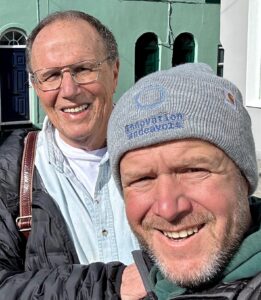During the month of May, most of the soldiers who are recruited came from technical schools, the street, a jail and/or from lower socio-economic groups.
Matriculation exams are in May and June, so it’s obvious that kids doing the “matrix” will not be called up till August.
There are some exceptions however to who gets enlisted in May: returning citizens, new immigrants, people who have studied abroad, people enlisted due to human error which can arbitrarily change an enlistment date, and other bureaucratic mishaps.
With an MA in hand from an elite university in Canada, I was enlisted in May. Yes, I was one of two “demographic exceptions”, the second being Freji Buabi, who had just immigrated from Lebanon with a PhD.
Freji had a very pronounced Arabic accent, and said that if things get rougher than they already were, he would volunteer to be shot as a terrorist in an exercise.
Recently, I have come to remember a few of the people and incidents that made Basic Training as interesting as it was difficult.
I did night guard duty with Mizrahi between 3 am and 6 am three times a week. Mizrahi had been the slammer twice for drug dealing and car theft. He came from a small town in the dessert. Although he was native born, his Hebrew was awful, all masculine and feminine forms mixed up. He could not write one word without a mistake.
Mizrahi hated me; he told me that he has pissed in my canteen “to sweeten up” the time I had to spend “with a low life like me”.
Mizrahi had a girlfriend and let’s put it this way: he had not yet entered the promised land. Using a flashlight one night, I wrote his girlfriend a love letter for him and, two weeks later, my status with Mizrahi and his toughs changed. I got big portions at lunch, and I was no longer harassed.
Mizrahi eventually returned to jail where I imagine he resides till today, if he is still alive.
Shimon Drori was from Beer Sheva. Drori had been enlisted in May due a sports injury he had incurred at the time he was supposed to have enlisted.
We had a lot in common: he read a lot; loved to speak English & French, secular and suffered from minor asthma. But more than anything else, Drori was a kind sort.
When someone fell, he helped them get up. When his mom sent him a package, he shared the goods. When we boarded a truck to go home for the weekend, he would always ask where I would be staying, as I had no “home”.
I looked for Drori many times after the army, but apparently the Earth swallowed him up. Or he lives in San Francisco or Berlin.
Piko was the son of a famous General in the Israeli Defense Forces, a fact he half tried to conceal; I stress the “half”.
Nasty, evil and snide, he picked up on everyone’s weakness and harped them. I am clumsy (understatement); I certainly gave him material for him at which to poke fun. Luckily Piko was caught drunk and went off to kalaboosh (jail) in the middle of Basic Training.
Then of course, there was Shmulvater who probably was the most stupid soldier I ever met. He used to brag that he could get the Base Commander’s car to drive him home. He did so by faking his mother’s death. Shmulvater of course never returned to finish basic training with us, as he served 60 days in military prison.
I also remember the clothes and the smells. I am very tall, and nothing fit me. Buabi told me, ”Fuck off Shevat and stop complaining, this isn’t a fashion show. We are prisoners of war”. And everything smelt of gun oil.
There are interesting borders that I have passed thru in my lifetime. The Taba Gate border crossing from Eilat, Israel to Sinai Egypt is a line in the sand which separates two different worlds. The border between Singapore and Malaysia being another such border.
But nothing for me is more differentiating than the border between Montreal’s McGill University and IDF basic training, which I crossed 53 days ago today.


